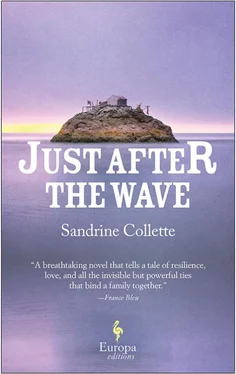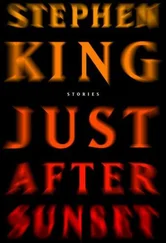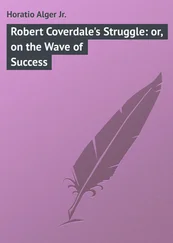Two , he corrects.
Five.
He opens his eyes wide, Two, two . The other three, he wasn’t the one who lost them, and besides they are not lost—but he knows very well that they are. And in the darkness and the silence, incapable of happiness, Pata feels himself shrinking, his stomach in knots. Not even landed on the coast yet and already he is anticipating the next calamity, the one he will not speak of to Madie, who already thinks he’s a bastard, the proof of it being the fact that they fled the island, could it be he was the only one who knew? Was that why he didn’t want to sign the note they’d left for their abandoned children?
There is no more island, no more hill, not a chance. If their house is still standing, it is under six feet of water. The level will have risen so much that it was a foregone conclusion before they even set sail: everything would be engulfed. And the father did not leave Louie, Perrine, and Noah only for the time it would take to save the others then go back for them; he doomed them to certain death. Whenever he thinks of it—every day, every night, every hour—he trembles, picturing them back there in their final moments, with no boat, no hope, nothing. And if they are clinging to a piece of wood—what for? For how long? Stop, stop. But the mother’s gaze is nothing if not truthful when she lets it fall on him with a silent accusation: Murderer.
Murderer, yes. He did what he did in full knowledge of the facts. He knew he would never see Louie, Perrine, and Noah again, he chose them, thought for a very long time about the children he had to have with him for the voyage—the eldest—and the ones Madie would never forgive him for leaving behind because they would not survive without her—the youngest. In the middle of that terrible equation there were three left. And it wasn’t because Pata loved them less than the others, whatever Madie might say, or that he thought they were not as good as the others, with their damaged bodies: it was that he had to decide. Either they left all together and died all together, or they saved some of them—and it would not be those three. Of course the father thought about giving up his own place, as did the mother once it became clear to her, before they left the island. But Liam and Matteo wouldn’t have been able to take everyone, to deal with the storms, the currents, the hunger, and the monster that had been giving chase right from the start. They would have fought over the food. They would have been frightened when the wind got up, or the waves turned gigantic—they would have capsized, Pata is sure. They’re still children , he thinks. Corrects himself. Were . God.
So there it is. He is the only one who knows, who is carrying this burden: Louie, Perrine, and Noah were doomed the moment the rest of the family took the boat to flee. He also tried to think of a way to cram more of them on board, how to tear doors or shutters from the house and nail them hastily to the boat to make some sort of cabin, but it wouldn’t hold, it would be too heavy, it would cause the boat to list, events have proved him right, they would have foundered all together, all dead, what was the point. Since there was no solution.
Pata is on his knees, hands together, at the bow. Lying a few inches from there, Liam is looking at him through his half-open eyes, not a sound, not a gesture. He is not sleeping, either: the feverishness of knowing land is so near makes the blood pound through his veins. Initially he was overcome by exhaustion, slept a few hours, and then his nerves got the better of him, he wishes he could row all night, get closer to the coast so that the mother and the little girls would have a surprise at dawn, to touch the meadow grass as they hold out their hands, dance a jig with cries of relief, they’re here at last, Liam knows the father wouldn’t want him to say it already but he can’t help it, deep down, they have arrived, at last. The fact that there are six of them and not eight: Liam puts that aside. There is absence, there is pain; but something else, too, even more powerful, that transcends his sorrow.
The joy of rescue.
And at that moment, even if Liam doesn’t put it exactly like this: for the others, tough luck.
No remorse, he’s had his share of suffering and fatigue. Regrets, yes, and sorrow, intense. But tomorrow. For now, only the ones who are living matter—who are alive, he thinks with a smile, who are hardy. The fittest. And Pata, you can’t really tell which side he’s on, part dead, part alive, all his strength gone, Liam restrains a surge of tenderness, don’t get up, don’t show him you saw him at his weakest, collapsing, just acknowledge that you’ll have to take care of him, making landfall doesn’t necessarily mean being rescued.
Pretends to stretch.
“You’re not asleep?” murmurs Pata.
“Not anymore.”
“Not sleepy?”
“I wish we were already there.”
“Yes. Me, too.”
“And I’m afraid, too.”
“Afraid? Why?”
“Of starting all over. We’ve got nothing.”
“We’ll manage.”
“… don’t even have anything to buy food. Where will we sleep?”
“I don’t know. But I’m sure people will help us.”
“You think so?”
“I know so.”
“Okay.”
“But for the time being we have to sleep and get some strength. Tomorrow will be anything but restful.”
“We made it, Dad.”
“Almost, son. A few more strokes of the oar, and we’ll surely be the last ones to have made it to land.”
* * *
The next day at eleven the coast guard finds them when they are only two nautical miles from land; they’d spotted them from the harbor. Initially—so they will tell them—they took them for some marine creature, once the alarm had been raised by some people out walking and watching the horizon with a telescope. The blue and white boat cuts its engine as it draws alongside them; the men have rifles. When they see the six wan figures in the boat, they immediately put down their rifles, astonished.
“Who are you? Where are you from?”
The father explains. He wonders if they will believe him.
“Good God, you were at Levet. No one has come from there in days, the few who weren’t drowned.”
Everyone thought they were dead, the people from Levet and the surrounding area, the land was too low-lying. Everything was inundated the day of the cataclysm, with the exception of the statues in Vallone and a few of the highest hills. Pata listens and begins to tremble: how do they know, how is this possible, he looks at Madie whose eyes are open wide, questioning, shaking her head, and yet, it is so simple. The early days after the tidal wave, the higher ground was overrun by refugees, half-drowned, exhausted, lost. Everything was reorganized to deal with the emergency, improbable shelters were found—sheepfolds, stables, garages; there were injured people to be tended, the dead that people had brought with them, to be buried; and then, very soon afterwards, rescue operations were set in motion to scour the new sea for survivors. With motorboats crisscrossing the flooded territory, they covered hundreds of miles over a star-shaped pattern, methodically, painstakingly sailing back and forth to find a few miraculous survivors, some of whom had gone mad. That is how they knew the statues in Vallone were still above water: they were there two days ago. And just when one of the men exclaims, But we should have seen you, which way did you go, how did we miss you, you must have drifted miles away , Madie lets out a wild cry, one hand to her lips, The children, the children!
The man in uniform frowns.
“The children?”
“On the island… there were three children.”
Читать дальше












